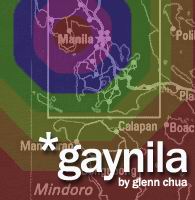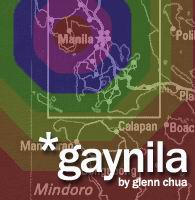While chatting with a gay friend over coffee (as usual) I suddenly realized that, unbeknownst to me, I'd been using several words in the local gay lingo. And I was somewhat startled and surprised at the ease with which they'd infiltrated my speech.

Now, some of them have become second nature to me. Still, as if to shatter my frail illusions of conformity, my friend would now and then drop a word I'd never heard of and I would have to ask him to stop and explain before continuing on with our conversation.
Language continually evolves. New words spring into existence and capture the public tongue while old words gradually fade into obscurity. Often, common usage, even if wrong, eventually redefines language.
Take for example the word "text". When cellular phones first appeared in the Philippines, everyone went crazy over the use of SMS text messaging as the quickest and cheapest means of communicating with each other. So much so that everyone "texts" each other regularly. I've been quite vocal about my protestations that "text" is NOT a verb, but everyone tells me that, through common usage, it now is.
Particularly so when it comes to the local gay lingo. Words are often
spin off from varied sources, though more often than not something related to showbusiness (remember, we're a country that thrives on cinema and practically venerate our movie stars, who eventually go into politics).
If a particular actor or actress does a booboo, or something spectacular, his or her name often becomes incorporated in the lingo to personify that particular act. Someone who's crazy used to be called "Lucretia" (both as verb and adjective), after National Artist Lucretia Kasilag because the words insane in Tagalog is "loka-loka" (feminine form). The only reason - just an accident of phonetics. Though, even this example is way outdated.
Sometimes it's a tricky maze to navigate. Oftentimes, I just nod and try to remember new words for future reference. As a writer asserted in a local daily, with the speed that words in gay lingo transmute, it would be virtually impossible to create a dictionary. Or even just keep up if you're not constantly exposed to it. You can find the link to the article on page two.
From my own limited experiences, I don't actually know of any other country in Asia where the gay community actually creates a gay language or lingo on their own. In Singapore and Malaysia, you get vernacular words that mean "gay", often in derogatory sense, like "ah kwah" and "pundek". In Philippines, the usual gay inventiveness is applied to coining words as and when needed, rather than simply using existing words from the straight world's vocabulary. Even western catchphrases like "you go, girlfriend" and others are still adaptations of existing language.

In fact, some words have even penetrated the straight public consciousness. Such as the word "Jolog", which even became the title of a local movie. I did some research and found several sources attributing different etymologies to the word - basically because it's a combination of several words. Contextually, it's a somewhat snobbish, but humorous way of saying someone is of a lower class, poor, uncultured, or uneducated. In a country where class-consciousness is predominant, the word became an instant hit. Even if it's technically insulting, common usage has made it a sort of joke, used to tease and joke, but not really to degrade. However, several sources agree that the word was first coined by a gay man - not surprising, with its catty and bitchy meaning.
I was also told that last year's radio commercial for the Philippine Advertising Congress was basically a 30-second spiel delivered in the local gay lingo, with the invitation to "come to the Congress if you want to learn how to speak like this". I was amazed, and unutterably delighted. Some brilliant hack of a copywriter not only managed to lift gay lingo into the common public consciousness, but also proclaimed that advertising was a gay enclave (practically true, anyway - I should know) and that being gay equates with creativity and flair, and that it was in fact stylish to speak like a gay man.
Now if I knew who he was, I'd send him flowers.











 列印版本
列印版本










讀者回應
搶先發表第一個回應吧!
請先登入再使用此功能。